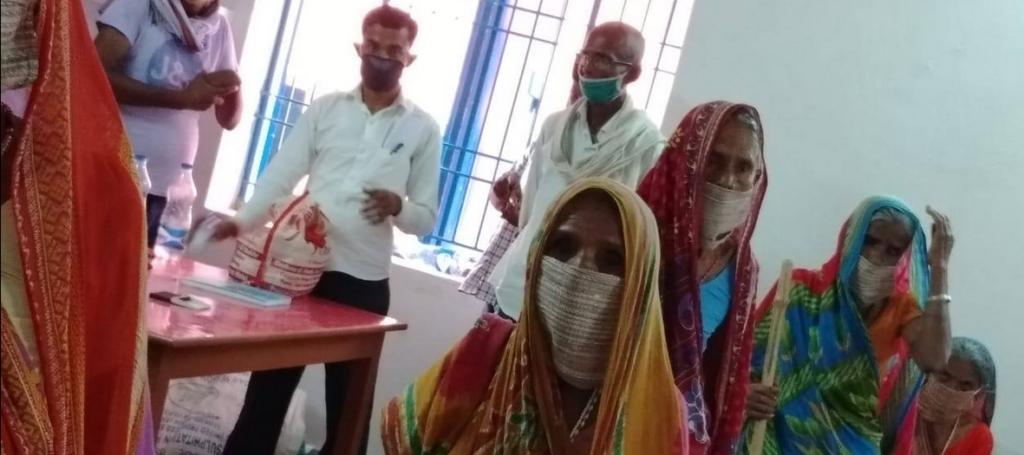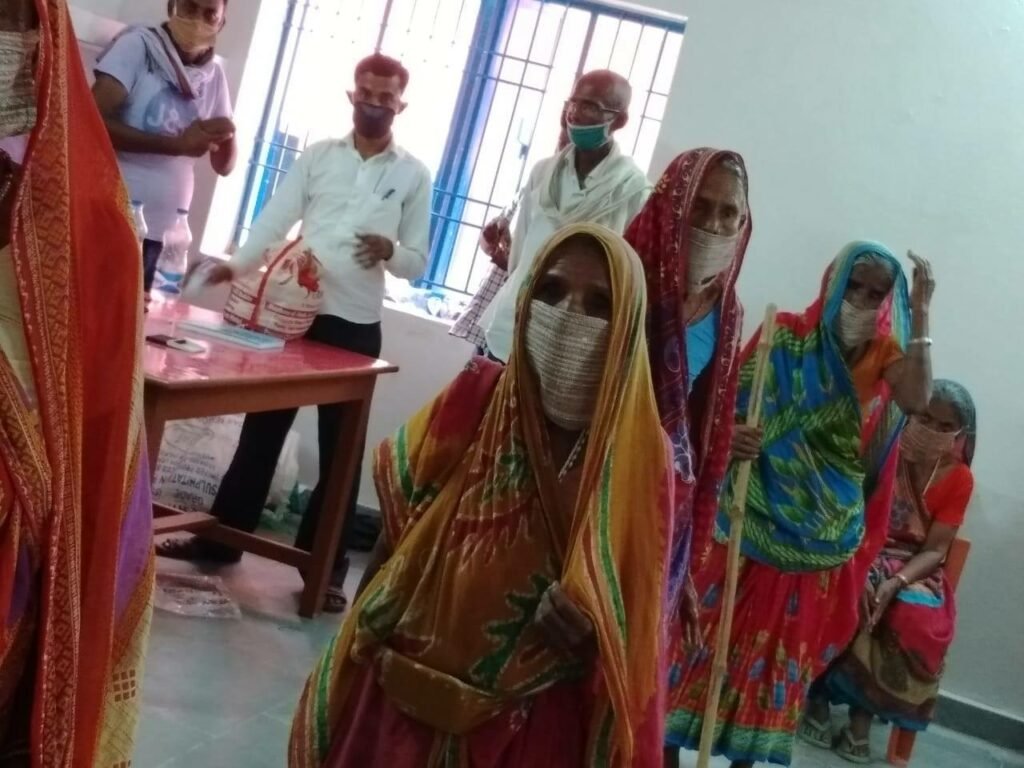
A few weeks into the first lockdown, the country began confronting the stark news of lakhs of migrant labourers fleeing the cities, heading back to their village homes on foot! Their families back home, dependent on the money they usually sent, were struggling not just to put food on the table but grappling with an uncertainty and anxiety the likes of which they had not experienced before, despite the life of hardship they lead regularly.
In North Bihar, which is a major supply region of migrant labourers to cities like Delhi, Mumbai, Bangalore and Kolkata, more and more families were reaching desperate levels, struggling to keep their lives pieced together. Families whose sole earning member had lost his job and who was on the road somewhere without food or water, families of landless and casual labourers who suddenly ran out of work, indefinitely, pregnant women and women led households – all became several times more vulnerable.
We, at Aripana Foundation stepped up like hundreds of other organisations across the country, leaving aside whatever we were doing up till then, to help the poorest and the most vulnerable with basic necessities like food and grains. With the help of elected representatives, such as Ward members and the Mukhiya, we identified families and individuals most in need – including widows, daily wage labourers and sanitation workers; and organized ration and basic sanitation kits for them. We were able to reach about 300 families (approx. 1500 individuals) with dry kits comprising of rice, dal, chura, sattu, oil, salt, spices, sugar, tea, soaps and masks.
Preeti Devi, whose earnings were keeping a family of 7 children (6 girls and a boy) and an ailing husband afloat, had lost her job as domestic help. Wives of Umesh Yadav and Kishen Paswan, labourers stuck in two different cities of India without a job, were struggling to feed their children. Munni Devi didn’t quite know what Corona was, but knew her husband, a casual labourer, had been without work for weeks and couldn’t tell when work would be available next! These are just some of the hundreds of stories of families reeling under the impact of the pandemic…
As convinced as all of us were of the importance of distributing food relief, implementing it in the face of this notoriously contagious virus and desperately needy families, required a lot of deliberation and meticulous planning. Social distancing norms had to be followed, safety of our team members and volunteers and people who had come to collect relief material could not be compromised at any point. The Mukhiya, along with team Aripana, had to ensure that the deserving received relief, without giving rise to resentment among other families in the close knit villages. We also used this as an opportunity to raise awareness in the community on safeguards to contain the spread of the virus.





